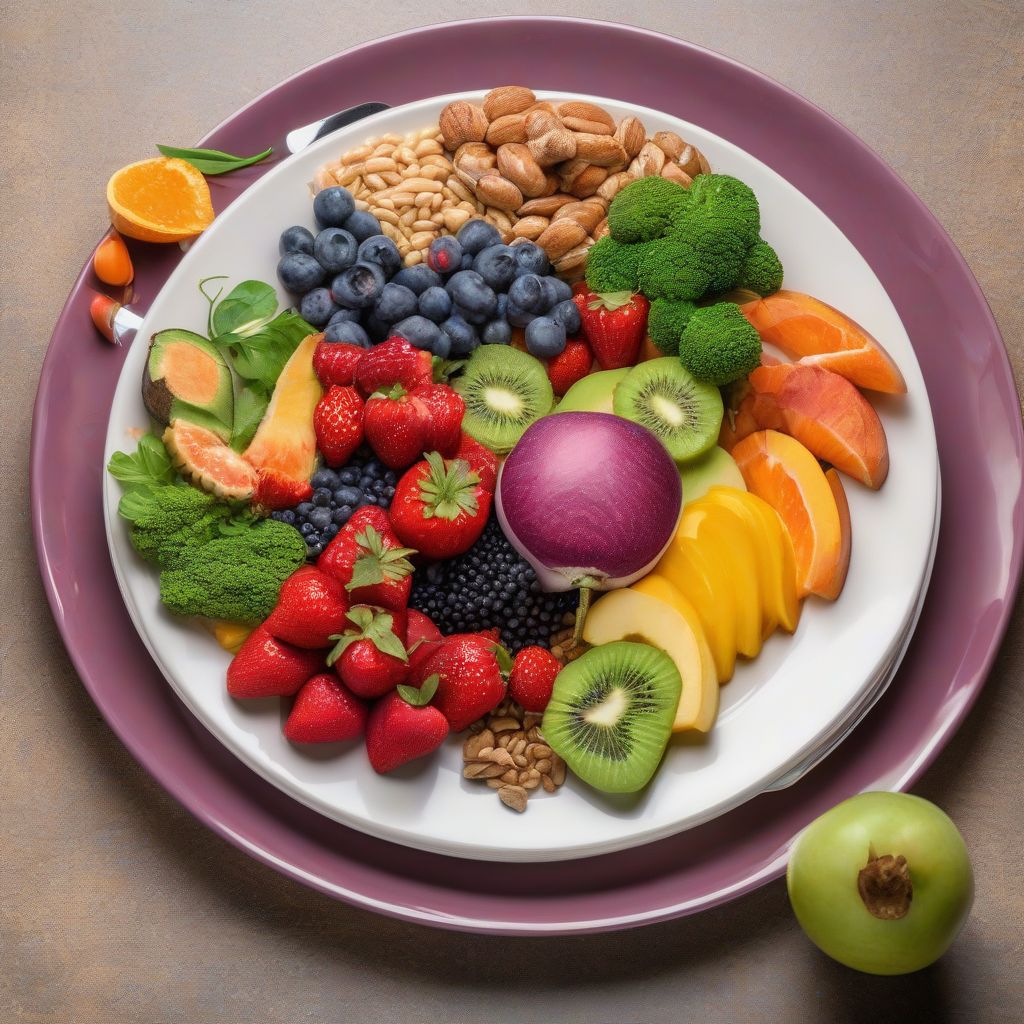“Abs are made in the kitchen.” We’ve all heard this fitness mantra, and it rings true. You can hit the gym religiously, but without a balanced diet, reaching your fitness goals can feel like an uphill battle. A well-planned eating strategy is the bedrock of any successful fitness journey, providing your body with the essential nutrients it needs to power through workouts, recover efficiently, and build strength and endurance.
So, if you’re ready to take your fitness to the next level, let’s dive into how to create a balanced diet that fuels your workouts and supports your overall health.
Understanding the Basics of a Balanced Diet for Fitness
Before we jump into specifics, let’s break down what “balanced diet” actually means in the context of fitness:
- Macronutrient Ratio: This refers to the balance of carbohydrates, protein, and fats in your diet. Each macronutrient plays a vital role in your body’s energy production, muscle repair, and overall function.
- Micronutrient Intake: It’s not just about the big three; vitamins and minerals are equally crucial. They act as essential catalysts for various bodily processes, including energy metabolism, immune function, and recovery.
- Calorie Control: While food quality is paramount, calorie quantity also matters. Consuming the right amount of calories based on your activity level and fitness goals is essential for achieving and maintaining a healthy weight.
 Balanced Diet for Fitness
Balanced Diet for Fitness
Building Your Fitness Plate: A Closer Look at Macronutrients
Think of your plate as your fitness fuel station, with each macronutrient acting as a different type of fuel. Here’s a breakdown:
1. Carbohydrates: Your Primary Energy Source
Why they’re essential: Carbs are broken down into glucose, your body’s primary energy source, especially during high-intensity workouts.
Best sources for fitness:
- Complex carbohydrates: Provide sustained energy release.
- Examples: Brown rice, quinoa, oats, whole-grain bread, sweet potatoes
- Simple carbohydrates: Offer quick bursts of energy, best consumed before or after a workout.
- Examples: Fruits (bananas, berries), yogurt
2. Protein: The Building Blocks for Muscle Repair and Growth
Why it’s essential: Protein provides amino acids, the building blocks your body needs for muscle repair, growth, and recovery after exercise.
Best sources for fitness:
- Lean protein sources: Provide essential amino acids without excess fat.
- Examples: Chicken breast, turkey, fish, beans, lentils, tofu, Greek yogurt
3. Fats: Essential for Hormone Production and Nutrient Absorption
Why they’re essential: Healthy fats are crucial for hormone production, nutrient absorption, and overall cell function. They also provide sustained energy, which is beneficial for longer workouts.
Best sources for fitness:
- Unsaturated fats: Help lower bad cholesterol levels and reduce inflammation.
- Examples: Avocado, nuts, seeds, olive oil, fatty fish (salmon, tuna)
Fine-Tuning Your Diet: Factors to Consider
While the macronutrient breakdown provides a general framework, tailoring your diet to your specific needs is crucial. Consider these factors:
- Fitness Goals: Are you aiming for weight loss, muscle gain, or improved endurance? Your macronutrient ratios will vary depending on your goals.
- Activity Level: The more active you are, the more fuel (calories) you’ll need. Adjust your calorie intake accordingly.
- Dietary Preferences: Whether you’re vegetarian, vegan, or have specific food allergies, ensure your diet meets your nutritional needs.
- Consultation with a Professional: Consider consulting a registered dietitian or a certified nutritionist for personalized guidance.
Meal Planning and Hydration: Setting Yourself Up for Success
Planning your meals in advance is one of the most effective strategies for maintaining a balanced diet. It helps you stay organized, resist unhealthy temptations, and ensure you’re consistently nourishing your body with the right nutrients.
Here are some additional tips for success:
- Prioritize whole foods: Focus on consuming minimally processed, nutrient-dense foods like fruits, vegetables, lean proteins, whole grains, and healthy fats.
- Hydration is key: Drink plenty of water throughout the day, especially before, during, and after workouts, to stay hydrated and support optimal performance.
- Listen to your body: Pay attention to your hunger and fullness cues. Eat when you’re genuinely hungry, and stop when you’re comfortably satisfied.
- Don’t be afraid to indulge (occasionally): It’s perfectly fine to enjoy your favorite treats in moderation. Deprivation can lead to cravings and overeating.
[amazon bestseller=”Fitness Trackers”]
Fueling Your Fitness Journey: A Lifelong Commitment
Creating a balanced diet for fitness is not about following a restrictive diet; it’s about making sustainable, healthy choices that nourish your body and support your fitness goals. It’s about understanding that food is fuel and that by choosing nutrient-rich options, you’re giving yourself the best chance to perform your best, recover efficiently, and achieve lasting results. Remember, consistency is key!
Looking for more guidance on setting up your fitness routine? Check out our articles on “How to Set Up a Home Fitness Challenge” and “Tips for Improving Sleep Quality and Mental Health” for a holistic approach to your well-being.
